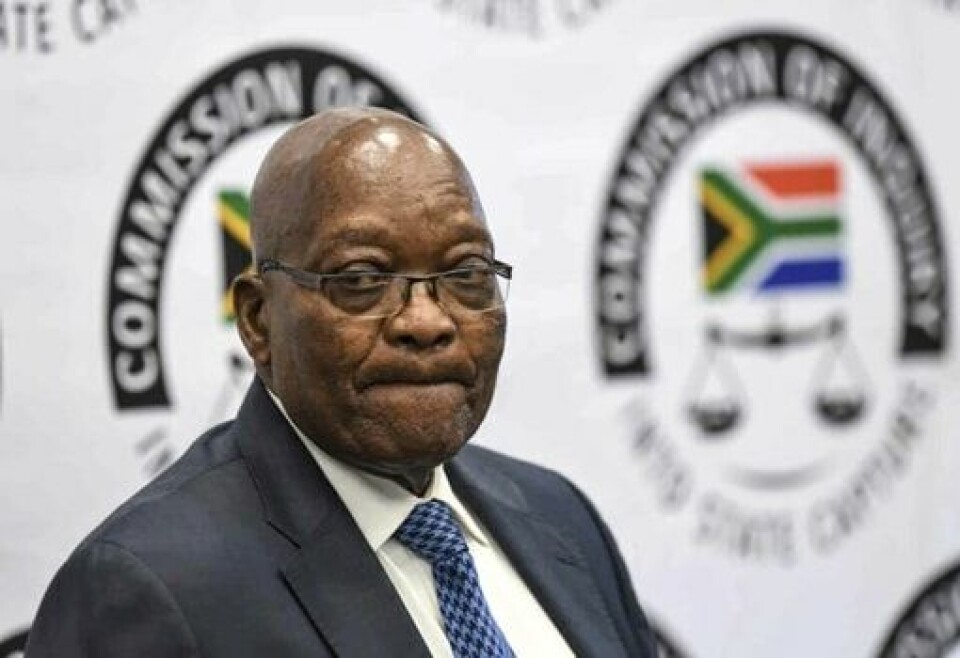Copyright : Re-publication of this article is authorised only in the following circumstances; the writer and Africa Legal are both recognised as the author and the website address www.africa-legal.com and original article link are back linked. Re-publication without both must be preauthorised by contacting editor@africa-legal.com
A Thin But Clear Line

Former President Jacob Zuma - and his lawyers - are treading on dangerous ground after he publicly stated this week that he would defy an order by the South Africa’s Constitutional Court that he appear before the Zondo Commission of Inquiry, tasked with probing “state capture” and corruption, writes Tania Broughton.
The commission - ironically set up by Zuma at the end of his two-year term in office - made the extraordinary court application after the former president repeatedly refused to present himself after appearing once and given what some terms to be a soliloquy.
Using every excuse in the book, he then resorted to what became an unsuccessful application for the recusal of commission chair, Judge Raymond Zondo, again, ironically, a man he himself had appointed.
Judge Zondo is a patient man. But the commission is running out of time. And Zuma’s involvement in state capture, including the role of the Gupta family, have placed him centre-stage of its deliberations.
The apex court handed down its ruling last week: Essentially it said he has to appear, he cannot remain silent although he does have the right not to incriminate himself.
On Monday Zuma put out a 12-page statement.
He said he would not appear before the commission as long as Zondo was the chair.
He said he would rather go to jail.
It remains to be seen what the commission will do next.
Experts say it's a choice between a political crisis (if he is arrested) and a constitutional crisis (if he is allowed to defy the court ruling).
But the role of those representing him has been raised by Constitutional expert Professor Pierre De Vos.
In a recent Daily Maverick article, de Vos notes that Advocate Kemp J Kemp - who died of Covid-19 complications last week - had represented Zuma during his rape trial and then in his attempts to bat off corruption charges (until 2018 when Zuma apparently ran out of money).
It was Kemp who executed the “Stalingrad approach” in the corruption matters and, essentially, “slut shaming” during the rape trial.
De Vos says what Kemp did was not unlawful and was within the confines of professional conduct for advocates.
But, he says, the latest debacle raises serious questions about “the type of conduct we have a right to expect from lawyers”.
“Every person, no matter how dishonest or reprehensible, has a right to legal representations. In terms of the “taxi cab rule” advocates often represent clients whom they have little in common with and may even profoundly disagree with or dislike.
“They have to fearlessly uphold the interests of their clients but also have a duty to the court and to the justice system and may not mislead the court.”
De Vos says Zuma’s legal team had “falsely advanced the argument that he was being unfairly treated by the commission”.
“Is it really acceptable for an advocate to assist a client to disobey the law and act in direct breach of the rule of law?
“There is a thin but relatively clear line between fearlessly representing one's client’s interests, on the one hand, and misleading the court and undermining the administration of justice, on the other. I would argue that ethical lawyers will always err on the side of caution to ensure they stay on the right side of this line. Unfortunately not all lawyers do.”
To join Africa Legal's mailing list please click here
